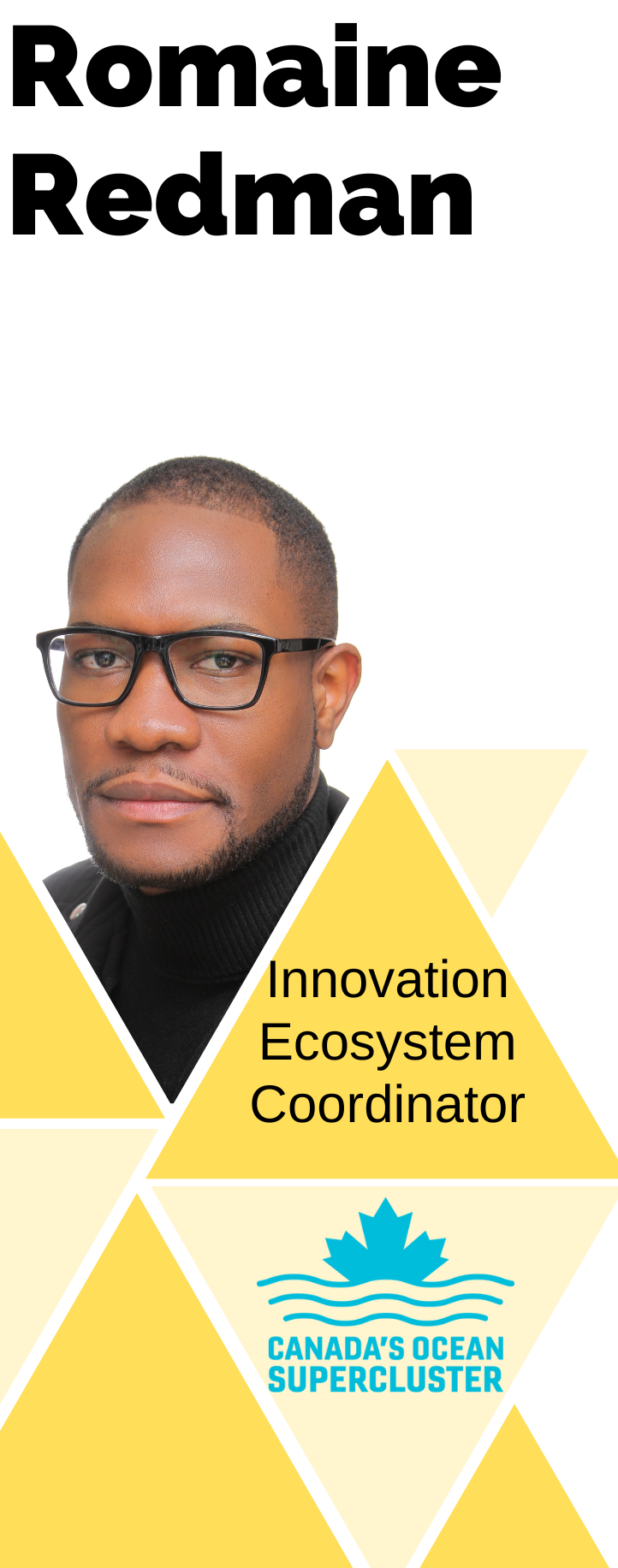

Internship Organization and designation: Innovation Ecosystem Coordinator, Canadas Ocean Supercluster
Roles and responsibilities: As an Innovation Ecosystem Coordinator in Canada Ocean Superclusters (OSC) Innovation Ecosystem (IE) Program, my primary responsibility is supporting the mandate of the OSC to build major collaborative initiatives to help ignite Canadas ocean economy. To do this I monitor the programs portfolio of projects valued at over $7.5 million, support project creation, represent the OSC on Steering Committees, support the organization and delivery of regular engagement meetings and workshops with ecosystem stakeholders, support refining program strategies, undertake economic research and analysis pertinent to the OSCs mandate, and support the OSCs stakeholder mapping and industry insights activities. I also co-lead the development of the organizations talent attraction and development initiatives which will roll out in the Fall of 2022. Oftentimes, my undergraduate and graduate education is called upon to help inform stakeholder engagement and organizational processes.
Whats Next: I intend to continue with the OSC especially as the organization looks to embark upon a renewed and expanded mandate in OSC 2.0. Particularly, I look forward to expanding the IE Programs portfolio of projects while launching the organizations talent attraction and development initiatives as they will help to solve the talent challenges across Canadas ocean economy.
How MEDI Helped Me: Firstly, it is worth noting that I was selected for an interview for the position of Innovation Ecosystem Coordinator because I am a student pursuing the Master of Economic Development and Innovation degree. The program gave me a theoretical and technical understanding of the goals and objectives of the Government of Canadas Supercluster Initiative, of which the OSC was born, as a tool for driving innovation across the five economic areas of opportunity. Hence, I entered the organization with an advance understanding of its overarching goals. The operational and funding model of the OSC is grounded in building relationships, partnerships, and collaborations to solve common challenges. Hence, the lessons I learnt in ENBUS 642 were often called upon to help with identifying suitable partners for collaboration on projects and initiatives, to engage with members and industry stakeholders, in the project development process, to engage with underrepresented groups, and even working with internal team members. ECDEV 603 proved particularly useful during my economic and industry research and analyses as, coupled with the undergraduate knowledge, it helped in analyzing the data that was unearth during each research project. ECDEV 604 and its approach to sustainability, coupled with ECDEV 601 and 602 and their lessons on economic development agencies and incentives, laid the foundation for understanding how to encourage stakeholders in the ocean economy to incorporate EDIR components into projects while funding projects that would have never been done if monetary and ecosystem incentives were not made available. Having learnt how to write a funding proposal in ECDEV 605, I have had the opportunity to both draft and evaluate proposals with the OSC. Overall, the entire MEDI program has helped me to both advance my career and personal goals.